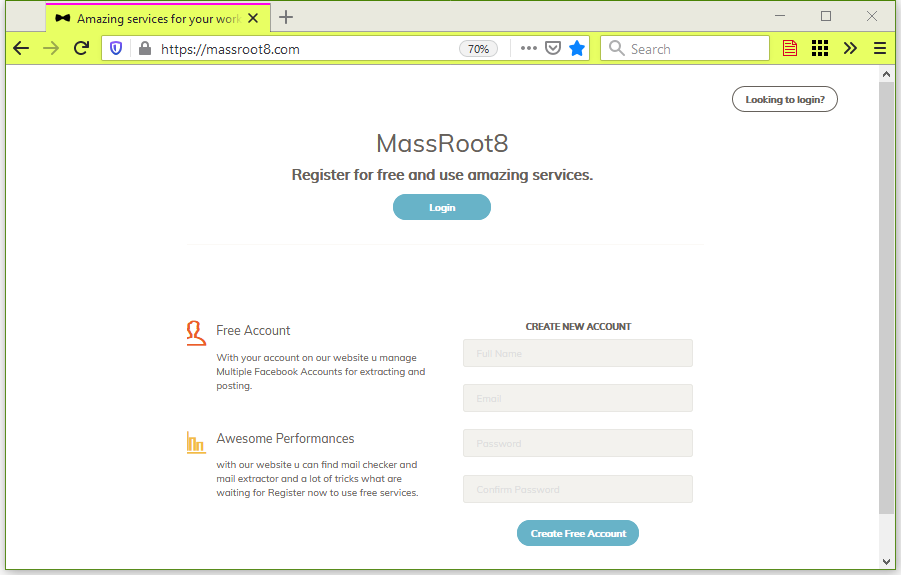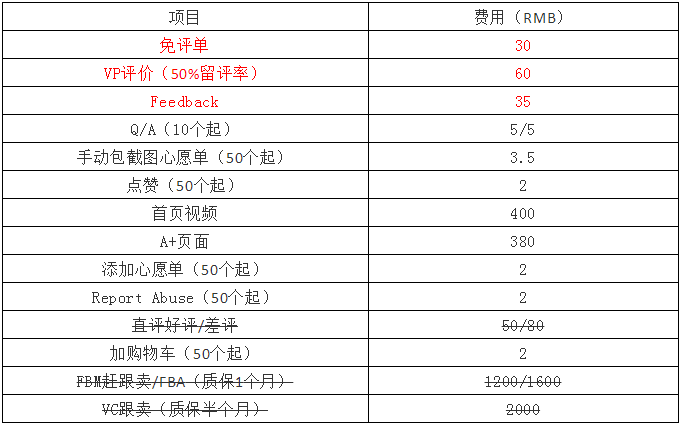Command Palette
Search for a command to run...
Facebook Sues Water Army Company: If I Can’t Delete All the Content, Can I Sue It?

Facebook, which has been plagued by fake trolls, recently sued a company that specializes in posting fake comments and likes. But this is only a small part of Facebook's crackdown on fake trolls over the past year or so.
How much influence do comments on e-commerce and social media platforms have? At the very least, they can affect personal judgment and lead to the purchase of fake goods; at the worst, they can manipulate public opinion and even affect election results.
Fake reviews have been rampant on major e-commerce and social platforms for a long time, and Facebook, Amazon, etc. have been continuously stepping up their efforts to crack down on fake reviews.
Just yesterday, Facebook took two companies that faked orders and stole user information to court.
If you don't listen to the warning, you will be prosecuted decisively
Facebook said in a press release:The company has sued MGP25 Cyberint Services in Spain.The company provides automated software to distribute fake likes and comments.

also,Facebook also sued Mohammad Zaghar in federal court in San Francisco.The company asks users for login credentials on its services, using that information to obtain data about them from the Facebook platform.
Lawsuit 1: Spanish review-boosting company
The first lawsuit was filed in Madrid, Spain, against MGP25 Cyberint Services, a local company.
Jessica Romero, Facebook's director of platform enforcement and litigation, said: "Defendants' servicesIt was done by mimicking the way the official Instagram app connects to our system, bypassing Instagram’s restrictions on fake likes and comments.”
"They (the defendants) did this for profit, and although we have previously sent cease-and-desist letters and disabled their accounts, their website is still up and running today."
Lawsuit 2: US data theft company
Facebook has also filed a second lawsuit in a US court in San Francisco against Mohammad Zaghar, owner of the website Massroot8.com.

The site claims to allow users to manage multiple Facebook accounts at the same time, but Facebook saysOnce a user signs up for an account, the site steals the user's Facebook password.
Facebook said Zaghar then used those passwords to secretly gain access to users' accounts and obtain data from their friends.
According to court documents, Facebook said:The defendants accessed more than 5,500 Facebook accounts.Facebook said the move violated the Computer Fraud and Abuse Act, a U.S. law governing hacking.

FB's way to combat trolls: deleting posts and suing them at the same time
Facebook has also been busy dealing with fake reviews and fighting against internet trolls over the years.
After the 2016 US election, Facebook was accused of helping spread misinformation and fake news, influencing American voters to vote.
This incident became an indelible scandal in Facebook's history, and Facebook paid a heavy price for it.
In April this year, the incident came to an end. The US Federal Trade Commission (FTC) issued a $5 billion fine to Facebook, and Facebook promised to make corresponding rectifications in terms of security and privacy.

In fact, Facebook has been fighting fake reviews before.
Last June, following an investigation by regulators into Facebook,Facebook removed 188 groups and disabled 24 user accounts associated with the fake comments.
after,Facebook is also actively testing the deployment of automated detection technology.To identify fake reviews on Facebook so they can be removed promptly.
In August 2019, Facebook stated,The size of the security team has been expanded to 30,000 people.

However, the massive amount of content generated by billions of users every day cannot be completely deleted by simply deleting it. If you want to thoroughly manage it, you must cut the roots.

Therefore, Facebook has been continuously filing lawsuits against websites that abuse data and publish false information in recent years. In just over a year, it has filed nine lawsuits.
Driven by huge profits, can they be wiped out completely?
The navy is much larger than what we see.
Previously, researchers joined dozens of comment groups while investigating Facebook.It was found that 3511 new posts were generated in one day and more than 55,000 posts in one month.
This is just the data on the Facebook platform. Platforms such as Amazon, eBay, and Yelp are all deeply affected by it. Of course, domestic Taobao and Weibo are also not to be mentioned. False reviews often push miscellaneous brands and inferior products to the top of the search homepage.
According to the reporter's investigation,"Internet Water Army" clearly marked the price, by deleting posts, posting posts, and even spending hundreds of thousands of yuan, one can "manipulate" public opinion.

An engineer who is responsible for finding and deleting fake reviews said,The price for a fake review posted by a water army ranges from $5 to $50.
In order to prevent false reviews from damaging its reputation, Amazon has also invested heavily in combating false reviews, investing more than 2 billion yuan in this area in just one year.
However, the water army industry chain is too deep, and it is still a wildfire that cannot be extinguished. I wonder if there will be a day when the grass will be cut and the roots will be eradicated.
References:
-- over--
